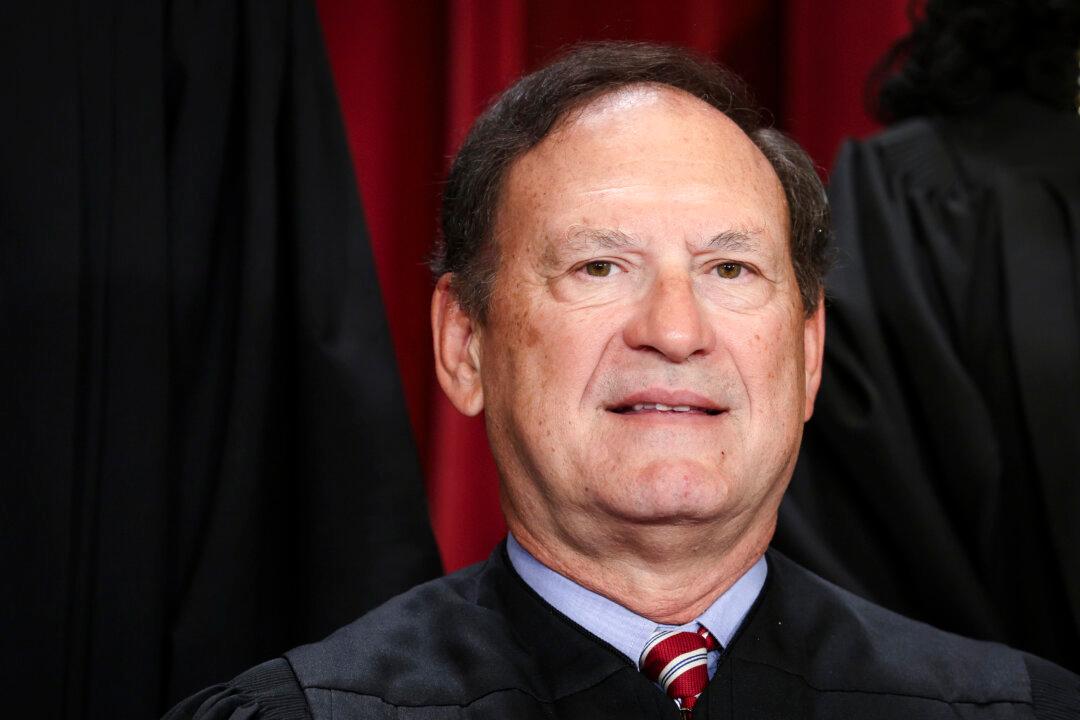The nation’s top court on Sept. 23 paused an appeals court ruling that could have led to the nationwide block of a law aimed at preventing doping in horse racing.
U.S. Supreme Court Justice Samuel Alito agreed to stay a ruling from the U.S. Court of Appeals from the Fifth Circuit that found part of the law violative of the U.S. Constitution. The stay is in place until a further order is entered by Alito or the Supreme Court.





